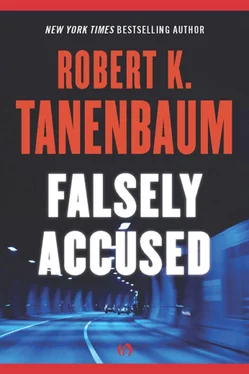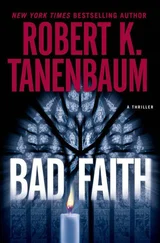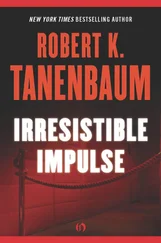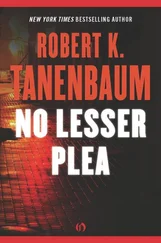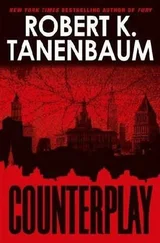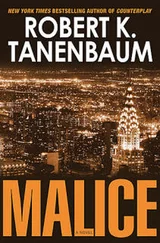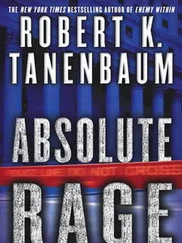Robert Tanenbaum - Falsely Accused
Здесь есть возможность читать онлайн «Robert Tanenbaum - Falsely Accused» весь текст электронной книги совершенно бесплатно (целиком полную версию без сокращений). В некоторых случаях можно слушать аудио, скачать через торрент в формате fb2 и присутствует краткое содержание. Год выпуска: 2010, Издательство: Open Road Integrated Media, Жанр: Криминальный детектив, на английском языке. Описание произведения, (предисловие) а так же отзывы посетителей доступны на портале библиотеки ЛибКат.
- Название:Falsely Accused
- Автор:
- Издательство:Open Road Integrated Media
- Жанр:
- Год:2010
- ISBN:нет данных
- Рейтинг книги:5 / 5. Голосов: 1
-
Избранное:Добавить в избранное
- Отзывы:
-
Ваша оценка:
- 100
- 1
- 2
- 3
- 4
- 5
Falsely Accused: краткое содержание, описание и аннотация
Предлагаем к чтению аннотацию, описание, краткое содержание или предисловие (зависит от того, что написал сам автор книги «Falsely Accused»). Если вы не нашли необходимую информацию о книге — напишите в комментариях, мы постараемся отыскать её.
Falsely Accused — читать онлайн бесплатно полную книгу (весь текст) целиком
Ниже представлен текст книги, разбитый по страницам. Система сохранения места последней прочитанной страницы, позволяет с удобством читать онлайн бесплатно книгу «Falsely Accused», без необходимости каждый раз заново искать на чём Вы остановились. Поставьте закладку, и сможете в любой момент перейти на страницу, на которой закончили чтение.
Интервал:
Закладка:
During the course of her testimony this morning, Karp had charmingly drawn from Ms. Davis that Ralston had been her very first homicide case, that she had received no specialized training in prosecuting homicides, and that she was unfamiliar with the practical operations of the medical examiner’s office.
“Ms. Davis,” said Karp, “how many assistant district attorneys are there working felonies?”
“I don’t know. Maybe three hundred, something like that.”
“Three hundred. And how many chief medical examiners are there?”
She narrowed her eyes: a trick question. “One.”
“Do you think it’s reasonable to expect the chief medical examiner to be at the beck and call of every assistant district attorney?”
“No, but …”
“For example, was there ever a time in your career where the lack of contact with the medical examiner’s office impaired the prosecution of one of your cases?”
“No,” said Davis, and seemed mildly surprised at her answer.
“Thank you. Now, you have indicated that three days before the trial in Ralston was due to start, you called Dr. Selig’s office and told his secretary that you wanted him in court at nine-thirty on Monday, January 13, and that his secretary called you later in the day and said that Dr. Selig had a conflict and could not be there. What was your reaction to that?”
“I was angry.”
“Yes, I’m sure you were. Because you had informed his office, I think it was, four whole weeks before the trial that you wanted him there-is that right?”
“Yes.”
“Ms. Davis, how long did the trial in the Ralston case last?”
“Thirteen days.”
“I see. Ms. Davis, did you imagine that the chief medical examiner of the City of New York was going to hold his calendar completely open for thirteen days waiting for your call for this one trial?”
A long pause. Ms. Davis had clearly not given the issue much thought. At the same time, although somewhat more vaguely, she understood that Karp was giving her the sort of training she had never once received from her own superiors. She said, frankly, “No, I guess I didn’t think of that.”
“Did you learn why Dr. Selig could not attend your trial at the time and place you desired?”
“He had a conflict, another trial.”
“Another trial. I see. Now, did the district attorney’s office, to your knowledge, make any attempt at coordinating its homicide cases so as to insure that Dr. Selig’s time was efficiently used?”
“No, not to my knowledge.”
“Thank you. Now, turning to the meeting you attended in Dr. Selig’s office, in the presence of Dr. Prahwah, the forensic specialist from Detroit, whose testimony we heard the other day. Dr. Selig mentioned that fact, the lack of coordination, did he not?”
“Yes, he did.”
“And the substance of his remarks was the inefficiency of the current arrangements of the district attorney’s office with respect to trying homicides, was it not?”
“Yes.”
“Would you say that Dr. Selig used vivid language in regretting the disbandment of the former Homicide Bureau by the present district attorney, Mr. Bloom?”
“Yes, quite vivid,” said the witness with a slight smile.
Karp smiled back, all friends now. “And you reported this vivid language, language quite insulting to the competence and acumen of the district attorney, to your superior, Mr. Sullivan, one of the Felony Bureau chiefs?”
“Yes, I did.”
“During this conversation in his office, did Dr. Selig at any time insult you personally, or hold you up to contempt before the eyes of his guest, Dr. Prahwah?”
“No, he did not.”
“And when you asked him technical questions related to the Ralston case, did he answer them properly and professionally?”
“He was rather short with me. Impatient.”
“Impatient. I see. How impatient, Ms. Davis? About as impatient as you would expect one of the most eminent forensic specialists in the United States to be when answering questions from a young and inexperienced prosecutor whose training has been neglected by her superiors?”
“Objection!” said Corporation Counsel Gottkind. “Calls for a conclusion.”
“Withdrawn,” said Karp. “Impatience, then, but no insult, no unprofessionalism?”
“No.”
“In other words, Dr. Selig reserved all his criticism and insulting language for the way Mr. Bloom runs the D.A.’s office, is that true?”
“Yes.”
“You won your case in the Ralston matter, did you not?”
“Yes.”
“And Dr. Selig did at last testify at that trial?”
“Yes, he did. He came on after the defense had completed their presentation.”
“And what was the quality of Dr. Selig’s testimony?”
“It was excellent,” said Davis in a positive voice. She had accepted the persona that Karp had provided for her: an intelligent woman working way over her head who had been sandbagged by her boss.
“It was excellent. So, contrary to the allegations made in the district attorney’s memo, Dr. Selig’s failure to attend the trial when you wanted him to in no way, quote, disrupted the conduct of an important murder trial, unquote?”
“No,” said Davis. Her eyes shifted to where Conrad Wharton was sitting, glaring arrows at her, and quickly looked away. Then she added, “As a matter of fact, it was probably an advantage to have a prosecution witness at that time, after the defense had already been on.”
“Thank you. No further questions,” said Karp.
“You might as well shut us down, Marlene,” said Harry Bello.
“Why? Because they’re cops?”
She was pacing in a fury in front of Harry’s desk. The desk was on the second floor of a Walker Street loft building that had just been renovated for commercial use. Harry’s desk was under a nice Sam Spade-ish semicircular window that looked out on Walker just off Canal. Marlene intended to have an eye painted in gold leaf in the round center pane of the window. Assuming they stayed in business.
Harry’s voice was impatient as he explained; Harry did not like explaining things. “We run on favors, Marlene. From the cops. From other investigators, ninety percent of them ex-cops. Word gets out we’re doing a number on these two”-he shrugged-“pack it in.”
Marlene was about to object that Seaver was ready to crack, that these particular cops were a disgrace to the Force, but thought better of it. Harry was himself a disgrace to the Force, and the Force had sheltered him, allowing him the opportunity for a few more episodes of brilliant service and an honorable retirement. It was the way things were with the cops; Marlene was a crusader but not an idiot. She moved on to other business.
“Karen Wohl?” she asked.
“Hubert P. Waley. Three-oh-six West Forty-ninth.”
“Great! How?”
“Spotted outside the TV studio. My guy followed him. Got a Karen Wohl museum up in his crib. Typewriter that wrote the love letters, drafts. It’s him.”
“How did he know to follow him?”
Harry got up and went over to a file drawer, where he pulled out a file and handed it to Marlene. One of the two phones on his desk rang, and he picked it up. Marlene looked through the file, and her question was answered. There was a brief surveillance report noting that Waley had been seen standing at the same place across from the entrance to a Sixth Avenue TV studio; there was an eight-by-ten photograph of him along with it, and it was easy to see what had attracted the attention of Harry’s moonlighting detective. Waley was a pear-shaped white man in his late twenties, with heavy black-rimmed spectacles, a flat, pasty face, and lank hair cut forties-schoolboy fashion. He was carrying a paper Macy’s shopping bag. He might as well have been wearing a T-shirt inscribed “stalker” in red letters.
Читать дальшеИнтервал:
Закладка:
Похожие книги на «Falsely Accused»
Представляем Вашему вниманию похожие книги на «Falsely Accused» списком для выбора. Мы отобрали схожую по названию и смыслу литературу в надежде предоставить читателям больше вариантов отыскать новые, интересные, ещё непрочитанные произведения.
Обсуждение, отзывы о книге «Falsely Accused» и просто собственные мнения читателей. Оставьте ваши комментарии, напишите, что Вы думаете о произведении, его смысле или главных героях. Укажите что конкретно понравилось, а что нет, и почему Вы так считаете.
